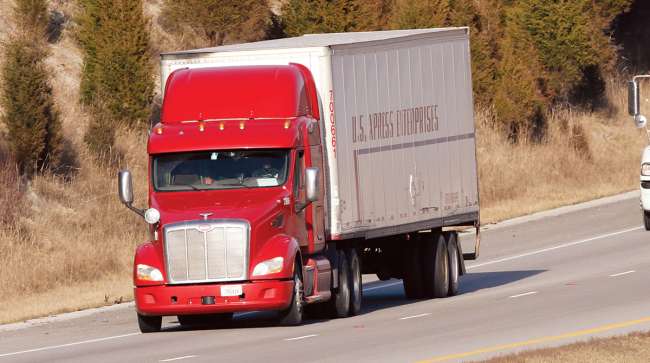U.S. Xpress Bids to Recruit Millennials With Scholorship Program

The deepening crisis of a truck-driver shortage that already is leading to higher prices for agricultural produce and threatening to stoke inflation is forcing trucking companies to find creative solutions.
RELATED: Walmart doubles spending in battle for truckers
U.S. Xpress Enterprises decided to take a page out of the U.S. military’s playbook and will be offering a college scholarship program for its drivers and dependents, mostly in an effort to attract and retain millennials — a demographic that typically does not look at trucking as a viable job option. “Often times people go into the military not because they necessarily want to be in the military but because they see it as a way to better themselves by getting an education and having the military pay for it,” said CEO Eric Fuller CEO of the Chattanooga, Tenn., fleet.
US Xpress ranks No. 21 on the Transport Topics Top 100 list of the largest North American for-hire carriers.

Fuller
The shortage of truck drivers is not an entirely recent development, but the problem has intensified amid a fired-up economy with ample job opportunities that do not entail being on the road for hours or days, and a new federal regulation that stops drivers from fudging their hours of service. Fuller says there is no respite in sight.
“Not only do I not see the driver situation changing — not only for the foreseeable future but for as long as we need a driver in the truck — I do not know of any catalyst that can change this dynamic,” Fuller said. “Unfortunately, we have demographics and competition working against us. Trucking is a tough job and convincing people to enter trucking as a career is becoming harder and harder.”
While hiking driver salaries might seem like the most obvious solution, Fuller noted that a scholarship program, such as the one his company is offering, also addresses the issue of retaining employees. U.S. Xpress employed about 6,900 drivers as of March 31, the company said in its IPO filing earlier this year.
“Driver turnover has a hard cost impact of $5,000 per driver and an all-in impact including soft cost and lost revenue opportunity of between $12,000 and $15,000,” Fuller said. “Retaining our precious resource, our drivers, will more than cover the cost of this program.”
The program would allow a driver and a dependent child, or two dependent children, to earn their bachelor’s or master’s degrees from Ashford University, which offers online courses.




